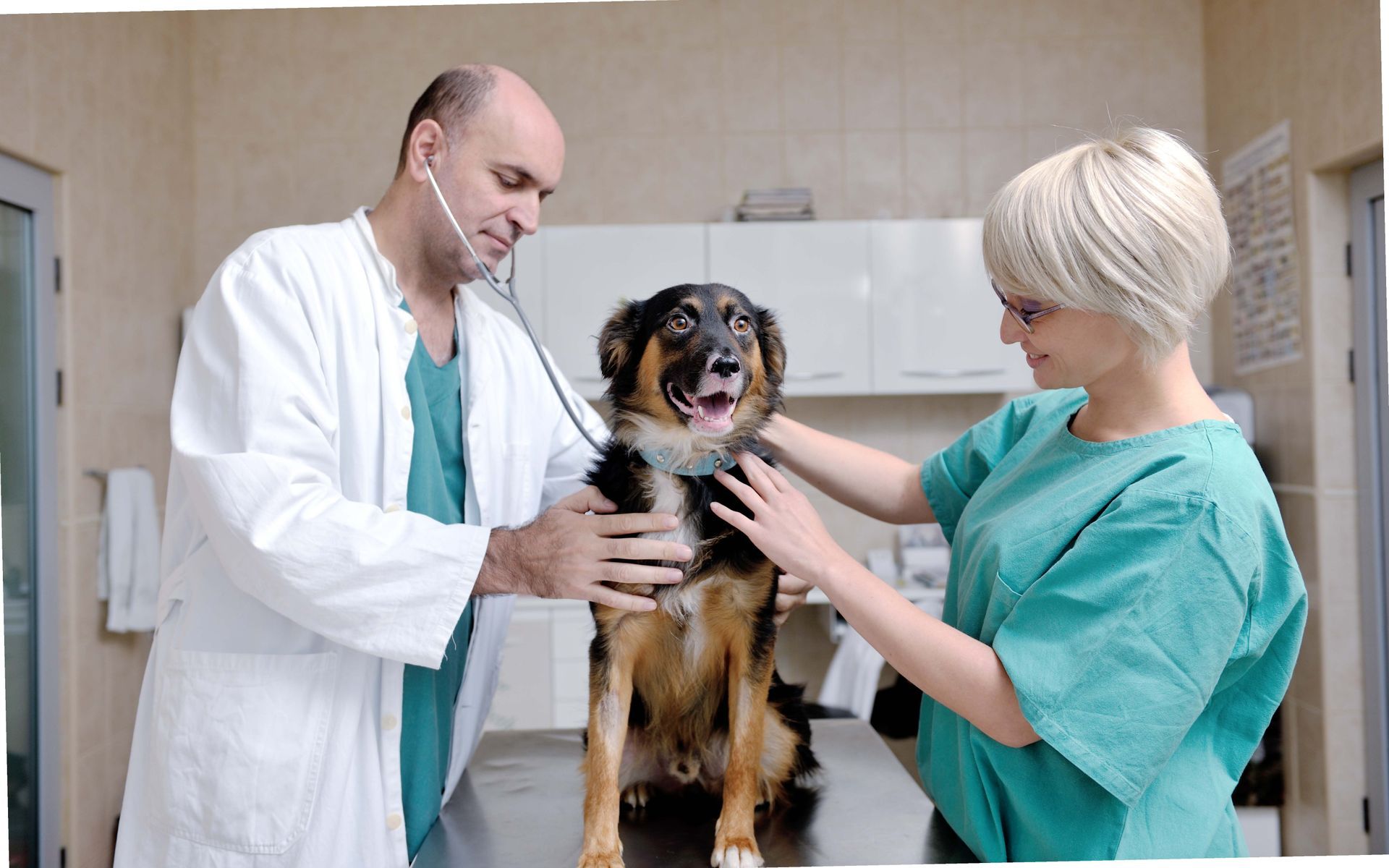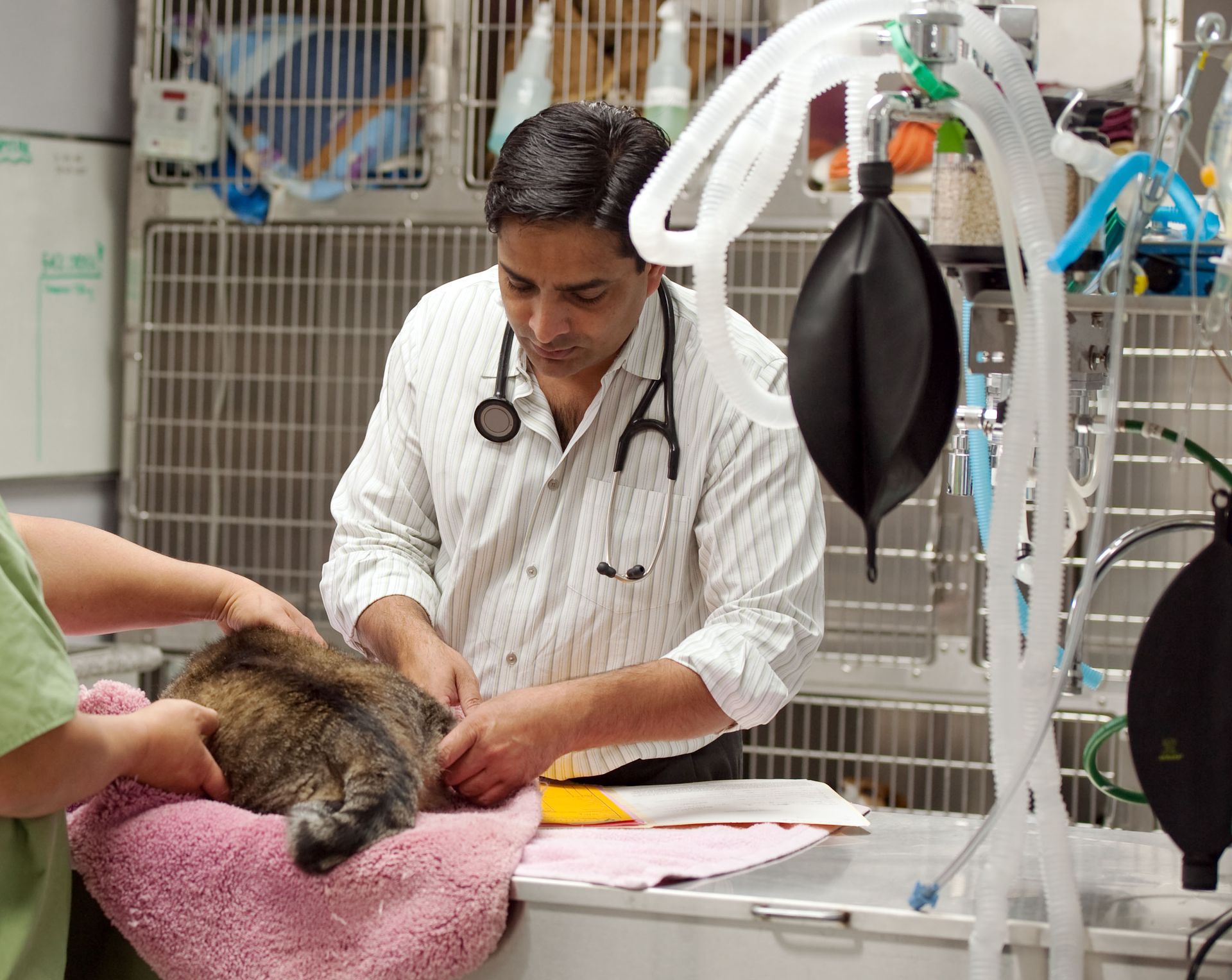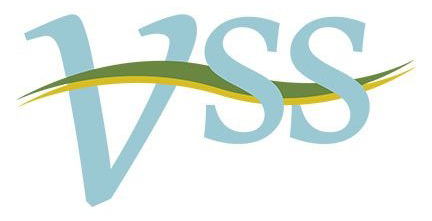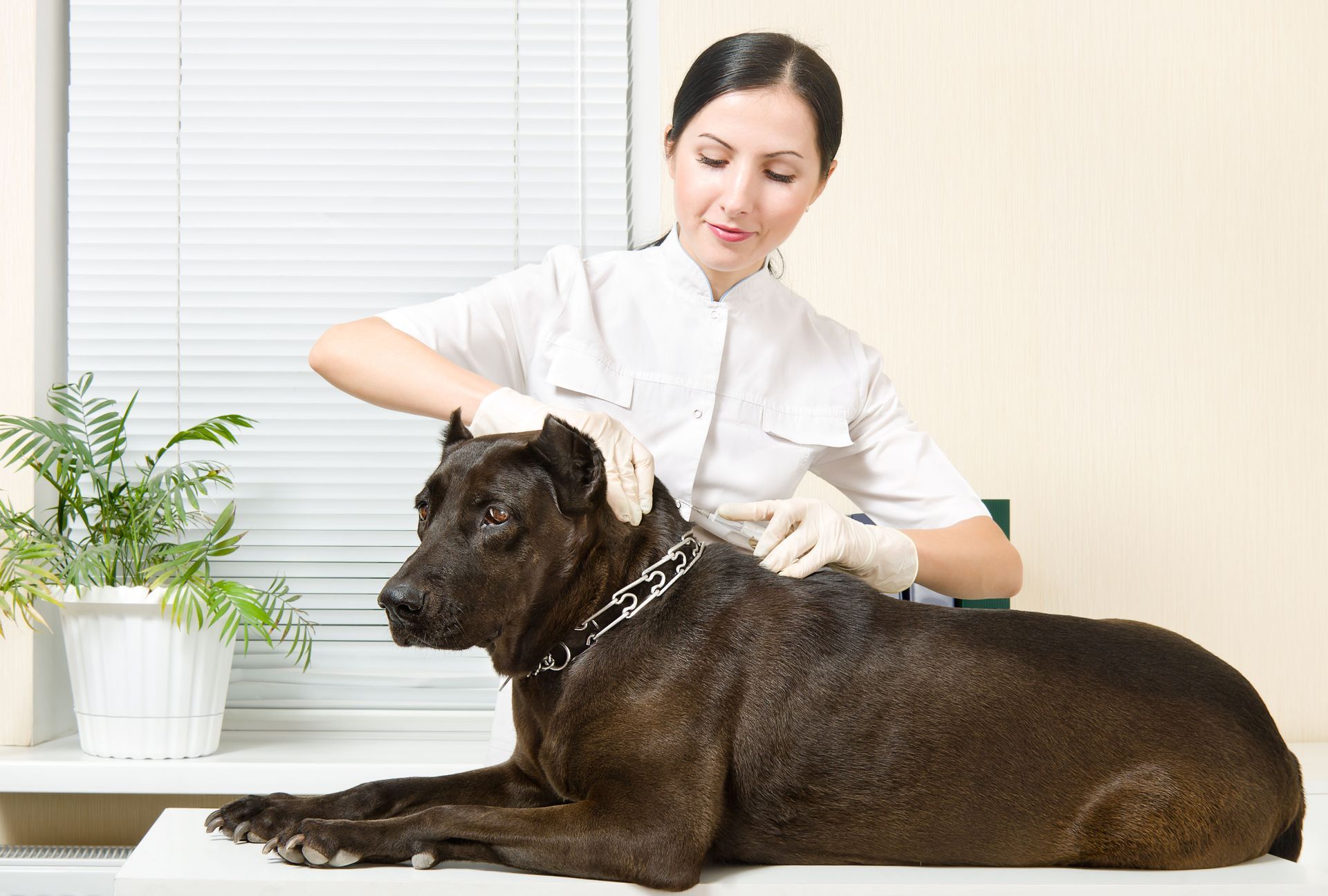Practice 911: How to Get Help for Struggling Veterinary Teams
June 10, 2025
June 10, 2025
How VSS Can Help
Running a veterinary hospital is not an easy feat. Industry-wide staffing shortages, rising client demands, emotional work, and daily “fires” can stress even the most resilient veterinary teams. Practice managers and owners must balance their team’s well-being with patient care and profitability in the face of these challenges.
Hiring outside help can help veterinary team leaders find solutions to these problems. Our Veterinary System Services team partners with veterinary clinics to target and alleviate common practice woes through relief staffing, inventory consulting, and medical-grade laundry services. We help clinics focus on what matters most: delivering outstanding veterinary care. Here’s how we can help.
The consultation process
Before offering any service, we start with a conversation. We come to the table with years of experience and a track record of success. Practices that follow the VSS approach consistently spend less and stress less. However, success is about consistency and not a one-time quick fix, so we’ll work with you to set up processes that help you achieve your goals and prevent problems from resurfacing.
Whether you’re seeking inventory consulting, staffing, or laundry services, VSS helps practice leaders build systems that nourish a healthy workplace. Every consultation is grounded in practical knowledge and delivered with candor, and we never offer cookie-cutter solutions.
Relief staffing to fill in gaps
Hiring the right people is hard, and keeping them is even harder. When veterinary turnover rates rise, many practices are left scrambling to fill gaps on the schedule and prevent burnout in their remaining veterinary team members. Relief staffing from VSS can provide teams with the help they need on busy days or in the absence of key personnel.
We maintain a network of highly skilled professionals, including veterinarians, credentialed veterinary technicians, technician assistants, and customer service representatives. Our professionals aren’t simply warm bodies or extra hands—they’re experienced enough to jump in on the first day and hand-selected based on your needs. To ensure continuity, you can request the same relief team members each time, or offer them a full-time position if you find they’re a good fit all around.
Inventory consulting to empower teams
Inventory is a significant expense and one of the most mismanaged areas of veterinary practice management. Over-ordering, stock-outs, disorganized storage, expired medications, and unclear protocols can quietly drain cash from your bottom line and strain your veterinary team members’ sanity.
VSS offers personalized inventory consulting services that bring clarity, control, and cost savings to your practice. Our consultants help with everything from identifying your most-used products to monitoring controlled substances and learning strategies to streamline ordering and prevent mistakes. We can consult locally or virtually, so you can contact us anytime for additional help.
Medical-grade laundry to reduce workload
How much time does your veterinary team spend doing laundry? If the answer is “too much,” you’re not alone. Keeping towels, gowns, scrubs, and bedding clean, folded, and sterilized is essential for infection control and patient comfort. However, constant laundry strains your hospital’s resources—including staff member time and effort, water and energy bills, and the cost to repair or replace broken equipment.
VSS offers a medical-grade laundry service designed specifically for veterinary clinics in the Denver Metro area. We pick up, wash, sanitize, and return linens on a regular schedule of your choosing, so you’ve got fresh towels stocked at all times.
Our laundry service meets medical sanitation standards, offers flexible service plans, and uses premium-quality linens that hold up to frequent use, making it an easy win for veterinary teams already stretched too thin.
One partner, many solutions
Veterinary System Services exists to help veterinary practices run better, cleaner, and more efficiently. We offer flexible services without locking you into a contract, so you can decide what you need and what you don’t. Reliable staffing, practical veterinary inventory support, and high-quality laundry services take work off your plate so your team can focus on patients, not paperwork or logistics.
Contact us to schedule a consultation if you’re dealing with burnout, turnover, disorganization, or inefficiencies in your practice—we’re here to help!
Hiring outside help can help veterinary team leaders find solutions to these problems. Our Veterinary System Services team partners with veterinary clinics to target and alleviate common practice woes through relief staffing, inventory consulting, and medical-grade laundry services. We help clinics focus on what matters most: delivering outstanding veterinary care. Here’s how we can help.
The consultation process
Before offering any service, we start with a conversation. We come to the table with years of experience and a track record of success. Practices that follow the VSS approach consistently spend less and stress less. However, success is about consistency and not a one-time quick fix, so we’ll work with you to set up processes that help you achieve your goals and prevent problems from resurfacing.
Whether you’re seeking inventory consulting, staffing, or laundry services, VSS helps practice leaders build systems that nourish a healthy workplace. Every consultation is grounded in practical knowledge and delivered with candor, and we never offer cookie-cutter solutions.
Relief staffing to fill in gaps
Hiring the right people is hard, and keeping them is even harder. When veterinary turnover rates rise, many practices are left scrambling to fill gaps on the schedule and prevent burnout in their remaining veterinary team members. Relief staffing from VSS can provide teams with the help they need on busy days or in the absence of key personnel.
We maintain a network of highly skilled professionals, including veterinarians, credentialed veterinary technicians, technician assistants, and customer service representatives. Our professionals aren’t simply warm bodies or extra hands—they’re experienced enough to jump in on the first day and hand-selected based on your needs. To ensure continuity, you can request the same relief team members each time, or offer them a full-time position if you find they’re a good fit all around.
Inventory consulting to empower teams
Inventory is a significant expense and one of the most mismanaged areas of veterinary practice management. Over-ordering, stock-outs, disorganized storage, expired medications, and unclear protocols can quietly drain cash from your bottom line and strain your veterinary team members’ sanity.
VSS offers personalized inventory consulting services that bring clarity, control, and cost savings to your practice. Our consultants help with everything from identifying your most-used products to monitoring controlled substances and learning strategies to streamline ordering and prevent mistakes. We can consult locally or virtually, so you can contact us anytime for additional help.
Medical-grade laundry to reduce workload
How much time does your veterinary team spend doing laundry? If the answer is “too much,” you’re not alone. Keeping towels, gowns, scrubs, and bedding clean, folded, and sterilized is essential for infection control and patient comfort. However, constant laundry strains your hospital’s resources—including staff member time and effort, water and energy bills, and the cost to repair or replace broken equipment.
VSS offers a medical-grade laundry service designed specifically for veterinary clinics in the Denver Metro area. We pick up, wash, sanitize, and return linens on a regular schedule of your choosing, so you’ve got fresh towels stocked at all times.
Our laundry service meets medical sanitation standards, offers flexible service plans, and uses premium-quality linens that hold up to frequent use, making it an easy win for veterinary teams already stretched too thin.
One partner, many solutions
Veterinary System Services exists to help veterinary practices run better, cleaner, and more efficiently. We offer flexible services without locking you into a contract, so you can decide what you need and what you don’t. Reliable staffing, practical veterinary inventory support, and high-quality laundry services take work off your plate so your team can focus on patients, not paperwork or logistics.
Contact us to schedule a consultation if you’re dealing with burnout, turnover, disorganization, or inefficiencies in your practice—we’re here to help!


August 19, 2025
Veterinary technicians spend years in intensive training programs to become credentialed professionals. They entered the veterinary field to save lives, provide advanced nursing care, and make a difference for pets and their people. But, in practice, m any credentialed technicians are inappropriately utilized and spend their shifts cleaning kennels and washing, drying, and folding the never-ending pile of veterinary practice laundry. Surely, your team members did not sign up to be licensed laundry professionals. Although every job requires some cleaning, as the facility must remain clean and tidy to minimize disease spread, that shouldn’t be your techs’ main job. Laundry is a necessary evil, but what if you could reclaim that time? Here are five reasons why outsourcing your laundry with Veterinary System Services could be your practice's best decision this year. 1. Harness your team’s talents Credentialed veterinary technicians (CrVTs) are highly trained professionals with advanced nursing skills and invaluable experience. They undergo a rigorous education alongside veterinary students, and that deserves respect. Your CrVTs probably excel at cleaning, too, but that doesn’t mean it's a good use of their talents. Outsourcing your veterinary practice laundry frees up techs to do what they do best—provide excellent care to patients and clients. Your technicians can contribute to the practice’s financial health in other, far more productive ways, such as assisting in surgery, educating clients, tending to hospitalized patients, or keeping the veterinarian’s schedule moving. Plus, technicians who are utilized to the fullest extent of their licensed skills have more job satisfaction. 2. Save time and boost practice efficiency Laundry—which can seem never-ending—is time-consuming for team members, as they load, fold, sort, and restock. Consider what your practice could accomplish if laundry were taken off everyone’s plate—not only your veterinary technicians. Your staff could redirect their energy toward seeing more patients or providing better care. Outsourcing laundry improves overall practice efficiency and ensures you never run out of towels for wrapping patients or surgical gowns for that last-minute emergency procedure. 3. Eliminate hidden costs Doing your own laundry seems like a reasonable solution to help keep operational costs down—your team is already in the building, so they might as well throw in a load of laundry, right? However, doing it yourself has hidden costs: Water and electricity — Constant washing and drying can spike your utility bills. Maintenance — Frequently used washers and dryers need expensive routine repair or replacement. Productivity loss — The time your team spends doing laundry doesn’t generate revenue, while direct patient care does. Outsourcing your veterinary practice laundry is likely more cost-effective in the long run. Pricing is a predictable monthly fee with no surprises related to repairs or leaks. 4. Improve veterinary practice cleanliness Cleanliness in a veterinary practice is about aesthetics and safety. Clients judge a hospital by looks and smells, and maintaining high cleanliness standards protects pets and the community from infectious diseases. However, achieving hospital-grade cleanliness with in-house laundry might take more work than you think. Leaving your veterinary practice laundry to the professionals ensures that your linens meet the highest hygiene standards. Professional equipment, detergents, and disinfectants, plus procedures to reduce cross-contamination, provide a total sanitary environment. 5. Boost morale and retention Your team, especially CrVTs, may feel undervalued when they spend their time and talents on tasks that don’t align with their training and education. Overburdening technicians with non-clinical duties like laundry can lead to burnout and turnover. However, using an outside service for your veterinary practice laundry shows your team you respect their time and credentials, improving team morale and retaining top talent in your clinic. Outsourcing laundry isn’t only about convenience or cost. Using the Veterinary System Services laundry program prioritizes what truly matters—delivering exceptional care and creating a respectful work environment where all your team members can thrive. Contact us to learn more about professional laundry services and give your team the break they deserve!

August 12, 2025
In the bustling world of veterinary practices, where compassion for pets meets the demands of business, one often overlooked aspect is the true cost of employee overtime. It's a topic frequently brushed aside or oversimplified, with many believing the additional hourly wages are the sole expense incurred. However, delving deeper reveals a complex web of hidden costs that can significantly affect a practice’s bottom line and the well-being of its staff and patients. The fallacy of hourly rates in veterinary medicine When questioned about how much a specific employee earns or “costs” the business, veterinary practice managers or owners frequently respond with something along the lines of, "Their hourly rate is $25, so they cost me $25 an hour.” But that view fails to capture the full picture. Beyond the question of base wages lies a myriad of additional expenses—from taxes and benefits to training and turnover—all of which contribute to the true cost of an employee. Understanding the true cost of veterinary employees To understand the real cost of a veterinary team member, you must consider the following factors: Overtime premiums — Overtime isn't only a matter of paying the base wage for extra hours. Federal and state laws often mandate overtime premiums, which can be as much as 1.5 times the regular rate. This additional expense can quickly add up, especially in practices where overtime is common. Burnout and diminished productivity — While it may seem easier to rely on overtime hours to meet business demands instead of seeking additional help, the long-term effects on employees can include burnout, fatigue, and decreased morale, which can lead to decreased productivity, increased errors, and higher turnover rates, not to mention serious mental health effects for your team members. Training and onboarding — Every new employee represents an investment in training and onboarding. When existing staff are stretched thin with overtime, the time and resources available for training diminish, potentially compromising the quality of care and increasing the likelihood of mistakes. Health care costs — Overtime doesn’t only tax the mind; it can also take a toll on physical health. Increased stress, irregular schedules, and inadequate rest can contribute to a host of health issues, ultimately driving up healthcare costs for employees and employers. Turnover and recruitment — The veterinary industry is no stranger to turnover, but excessive overtime can exacerbate the problem. Employees who feel overworked and undervalued are more likely to seek opportunities elsewhere, leading to increased recruitment and onboarding costs for a practice. Confronting the truth about overtime for veterinary professionals It's easy to fall into the trap of believing that overtime is a cost-effective solution to staffing shortages. However, as veterinary professionals, we must confront reality head-on and acknowledge the true burden of overtime. This means taking the time to calculate the full cost of employee hours, including direct and indirect expenses, and weighing them against the benefits of a well-rested, motivated workforce. How to manage the true costs of overtime What can veterinary practice managers do to mitigate the hidden costs of overtime? Here are a few strategies to consider: Evaluate workload and staffing levels — Take a critical look at workload distribution and staffing levels to identify areas of inefficiency or over-reliance on overtime. Invest in staff development — Make training and professional development opportunities a priority to ensure employees have the skills and support they need to thrive. Implement flexible scheduling — Explore alternatives to traditional scheduling models, such as flexible hours or compressed workweeks, to accommodate fluctuating demand without resorting to excessive overtime. Promote work-life balance — Encourage a culture of work-life balance by offering benefits such as paid time off, wellness programs, and employee assistance services. Communicate transparently — Foster open communication with staff about workload expectations, overtime policies, and the importance of self-care. In the fast-paced world of veterinary medicine, the true cost of employee overtime can often be overshadowed by immediate staffing needs and budget constraints. However, by taking a holistic view of employee expenses and acknowledging the hidden costs of overtime, practice managers can make more informed decisions that balance both financial sustainability and employee wellbeing. To discuss how overtime can wrack up considerable costs you may not realize, give our Veterinary System Services team a call. We’ll guide you through the pros and cons of bringing relief staff on board and provide a cost comparison in terms of finances, patient and client care, and employee wellbeing.


